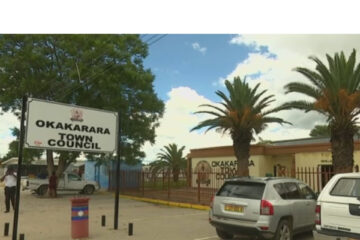Martin Endjala
The Ministry of Labour, Industrial Relations, and Employment Creation (MLIREC) has announced that it has resolved 4,089 labour complaints, resulting in the collection of more than N$1.8 million on behalf of affected employees from their employers.
The ministry reports that the affected employees received the collected funds.
The non-payment of remuneration is the subject of these complaints.
The ministry’s executive director, Lydia Indombo, revealed this information to the Windhoek Observer last week regarding the ministry’s challenges and positive highlights within the labour sector.
“The office of the Labour Commissioner dealt with a total number of 5,612 labour cases, of which 2,818 were successfully resolved, through conciliation and arbitration processes, and 2,794 cases are in the process of being finalised. The reasons for unsolved cases vary and may range from postponement by the parties to the dispute and ongoing negotiations between the parties, amongst others,” she said.
There is a difference between labour complaints and cases or disputes.
According to Namibian law, labour inspectors handle complaints about service conditions and occupational health and safety.
On the other hand, cases or disputes involving unfair labour practices lead to a hearing before an arbitrator.
She clarified that it is necessary to follow the arbitrator’s decision.
Only the labour court has the power to overturn such a decision.
According to Indombo, the ministry continues to assist employers and employees with related labour matters.
The ministry registered 12,129 job seekers under the Namibia Integrated Employment Information System (NIEIS) during the previous financial year, placing 1,350 of them in various industries for employment.
Indombo highlighted that the shortage of staff members is hampering the ministry’s operations, among other resources.
She stated that the Labour Commissioner and Directorate of Labour Services are the most affected.
“Having less staff in these units means prolonged time to deal with lodged complaints and disputes, as well as work overload among staff members, and deadlines for case finalisation, will be delayed,” stated Indombo.
However, the ministry is working on initiatives such as introducing an employment-centred budgeting tool and implementing employment impact assessments, among others.
As for the highly anticipated national minimum wage, Indombo said the process has been finalised and the authority will be approached to endorse Namibia’s first national minimum wage law.
This law aims to address inequality in salaries for low-paid employees and serve as a blueprint within the sector.
Indombo revealed that the ministry faces challenges, particularly non-compliance by some unions. The ministry has now issued directives to deregister such unions from operating.
Last week, the Labour Commissioner’s office deregistered seven trade unions and one employers’ organisation due to failure to fulfil their obligations as outlined in the Labour Act.
This is because the unions failed to submit their annual returns within the stipulated time frame.
The Namibia Building Workers Union (NABWU), Namibia Fishing Industry and Fisherman Workers Union (NFI&FWU), Namibia Fuel and Allied Workers Union (NAFAWU), Namibia Cabin Crew Union (NCCU), Namibia Security Guards and Watchmen’s Union (NASGWU), Union for Institutional and Household Employees of Namibia (UIHENI), and Namibia United Truck Driver’s Union (NUTDU) were all deregistered.
The only employer’s association to deregister was the Namibia Bus and Taxi Association (NABTA).
“Despite prior warnings issued to non-compliant entities late last year, followed by repeated reminders, a significant number failed to adhere to the requirement of submitting annual returns. Consequently, the Labour Commissioner was left with no choice but to cancel the registrations of the aforementioned non-compliant entities,” Nikanor explained.
She emphasised that these trade unions and employer organisations are no longer authorised to represent employees or employers in labour matters.




